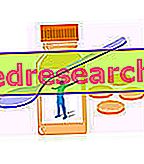The hiccups is an unexpected contraction, therefore involuntary and spasmodic, of the diaphragm that is expressed in an inspiration followed by the sudden and noisy closing of the glottis.

Hiccups are also characteristic of some diseases that irritate the motor nerve of the diaphragm (phrenic nerve), such as the hiatal hernia (rising of a stomach tract in the diaphragmatic hole), affections of the final part of the esophagus, pericarditis, peritonitis, perforation of peptic ulcer, myocardial infarction, tumors of the first digestive tract (gastric and esophageal) and intestinal obstructions.
Remedies for hiccups
To solve the problem of short-lived hiccups, which arises in the absence of organic alterations, the popular tradition teaches various remedies, many of which possess a scientific background. Since this disorder, given its involuntary origin, is comparable to a nervous "tic", the voluntary activation of the diaphragm can help to make it disappear;
- drink a glass of water (some advise doing so holding your nose),
- hold your breath for about twenty seconds,
- operate the valsalva maneuver,
- quickly repeat a nursery rhyme,
- swallow bits of ice,
- or provoke belching with carbonated cold water,
often useful actions are revealed to accelerate the disappearance of hiccups precisely because they involve a voluntary control of diaphragmatic activity.
Phytotherapy proposes remedies based on the spasmolytic and calming activity of some herbs, such as chamomile (infusion of heads), valerian (root), passionflower (top), wild thyme (whole flowering plant), lavender (flowers) and mint (leaves). Similarly, in the event of persistent hiccups, doctors intervene by administering sedative drugs (benzodiazepines) and abdominal spasmolytics (atropine) to the patient.
To learn more, read: All the remedies for hiccups »



